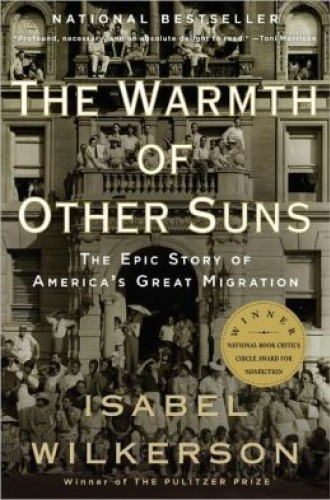Someone else's liberation
The Century invited people to comment on their favorite book of the Bible and a book that has helped them appreciate or understand the biblical text. All of the responses are linked here.
The biblical story is not told from my point of view. Reading the book of Exodus together with Isabel Wilkerson’s The Warmth of Other Suns illuminates this truth for me. The Word of God is the eyewitness account of escaped slaves. The Word of God is a tale of defiant resistance to Jim Crow’s noose. The Word of God is an unanswered cry of yearning for a home that fully welcomes the migrant’s humanity.
Wilkerson tells the story of the Great Migration by tracing the lives of three people, one of whom is Dr. Robert Foster. Traversing the desert between Louisiana and California, exhausted, afraid, and alone, Foster could find no hotel to offer him a bed. He quickly realized that the Promised Land was not as promised.
In my northern city, we still are very effectively segregated. We have a clear distinction between those who are protected, served, and educated and those who are terrorized and exploited. The Israelites lamented, “Was it because there were no graves in Egypt that you have taken us away to die in the wilderness?” Again and again, hunger and thirst, death and despair, lie waiting beneath the veneer of life and freedom.
The biblical story is not told from my point of view. How do I, a white, privileged Christian—that is, an Egyptian—hear the Word of God, the narrative of liberation?





